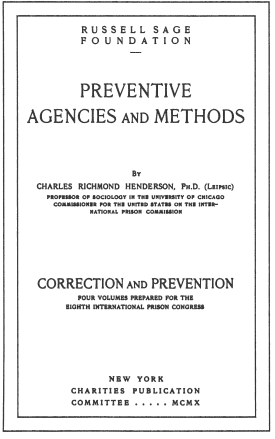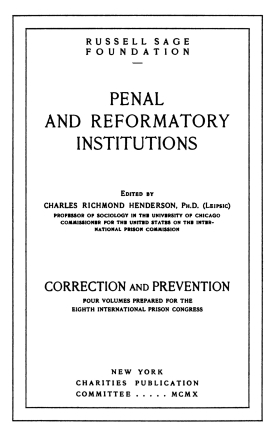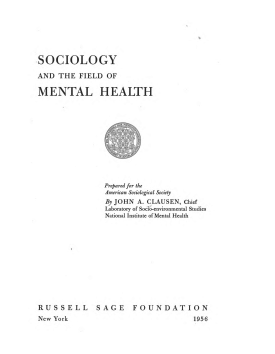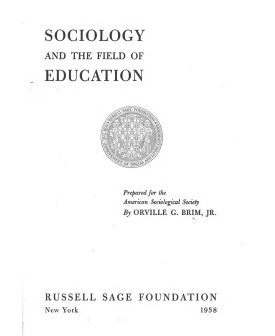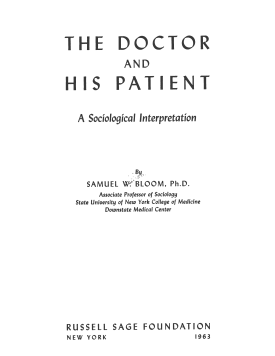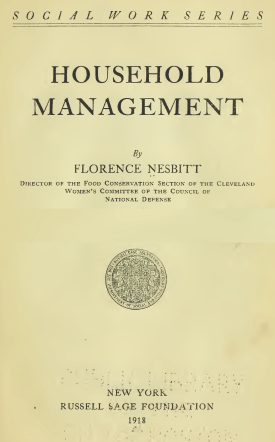About This Book
A volume of the Correction and Prevention papers prepared for the Eighth International Prison Congress in 1910, published by the Charities Publication Committee of the Russell Sage Foundation.
CHARLES RICHMOND HENDERSON was professor of sociology in the University of Chicago and commissioner for the United States on the International Prison Commission.

